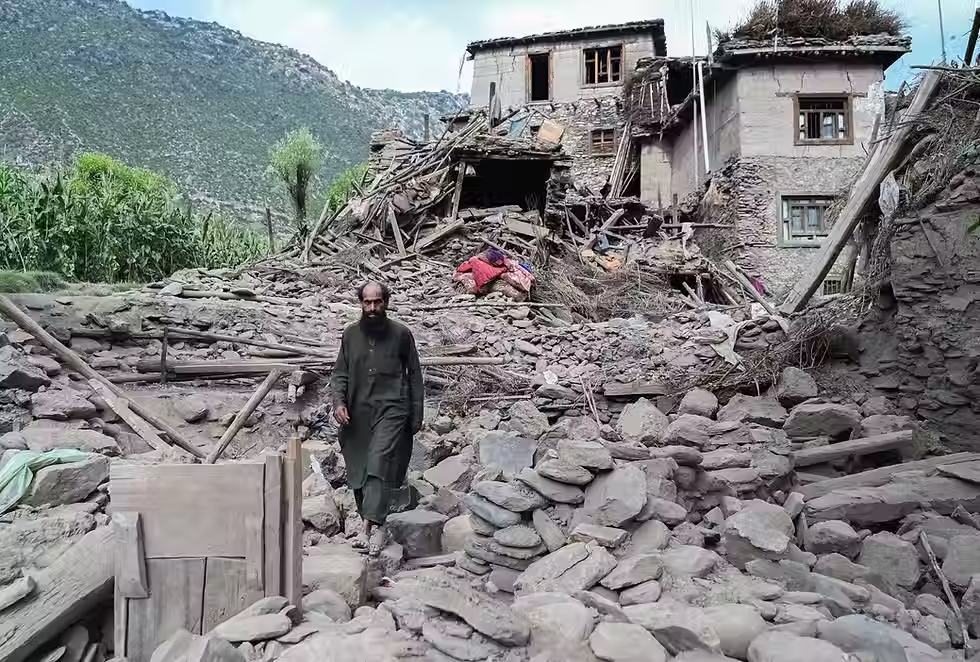1,000 Dead After Deadly Landslide Strikes Western Sudan
- Armaan Dhawan

- Sep 3, 2025
- 3 min read
At least 1,000 people are dead after a devastating landslide struck western Sudan yesterday, wiping out an entire village.
The landslide occurred in the region of Darfur, located on Sudan's western border, above the village of Tarseen in the Marra mountains. Based on their approximations of the village population, the Sudan Liberation Movement/Army, a local rebel group, have deduced that around 1,000 were killed. Only one person in the entire town survived the disaster.
Unfortunately, Darfur lacks many of the supplies needed to build up a solid town, and they do not have the resources to rescue people from disasters once they happen. Many villages have no access to major roads, making them only accessible by helicopter, and are built in dangerous locations at the foot of unstable mountains. Furthermore, authorities, which have been caught up in the fighting, have no resources to assist the people affected by the disaster.
Tarseen, a remote village, can only be reached by donkey or a three-hour walk without a helicopter, and there is no cellular service and little governmental authority that controls the region. This, in addition to continued rainfall and a lack of heavy machinery, is hampering their rescue efforts, meaning that the true death toll may be unknown for an indefinite period of time. Also, nearby villages are now scrambling to take action to avoid a similar disaster, as heavy rains continue to fall across the region.
This underdevelopment is one of the primary effects of Sudan's civil war, with the region of Darfur at the forefront of the situation. Unfortunately, that conflict continues today as Sudan's civil war persists due to ethnic differences and battles over natural resources. This keeps the country in a constant state of civil war due to the improper borders and unequal development set by colonialists hundreds of years ago.
Now, in recent years, as the war has ramped up, a humanitarian crisis has unfolded, and the humanitarian situation in Sudan is currently the worst in the world. Millions of people from major cities have fled into small villages in the mountains to avoid the fighting, where soldiers often attack innocent civilians. However, the influx of refugees has greatly exceeded the capacity of these remote towns, with thousands of people cramming into small buildings. Additionally, diseases spread extremely quickly in tightly-packed spaces, and deadly epidemics of fatal conditions like cholera are becoming more and more common.
Meanwhile, the forces fighting in Sudan have stopped international aid from reaching citizens, leading to an even larger disaster. Armies have killed aid workers and stolen supplies, preventing the help from reaching those who need it.
Furthermore, landslides and mudslides will only become more common in the mountains as the impacts of climate change become more severe, leading to longer, heavier rainfall events followed by large stretches of drought, leading to famine.
Fact of the Day (The Fact Site): If you heat up a magnet past a certain temperature called its Curie point, it will permanently lose its magnetism. This happens because the thermal energy causes the atoms within the material to vibrate randomly, disrupting the magnetic alignment of the substance.
Quote of the Day (Gracious Quotes): Amateurs sit and wait for inspiration, the rest of us just get up and go to work. (Stephen King)
Word of the Day (Merriam-Webster): Carp (verb, KAHRP) - To carp is to complain in an annoying way.
In a Sentence: They’re always carping about their boss.
Image credit to Sky News


Comments